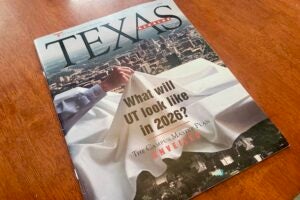The Consumer Financial Protection Bureau is a runaway success. In the nearly five years since its founding, the CFPB has handled more than 1 million consumer complaints, including 53,000 from Texans, and returned $12 billion of ill-gotten gains from financial companies back to 29 million consumers.
But now two of Texas’ most prominent elected officials – Sen. Ted Cruz and Rep. Jeb Hensarling – have each introduced legislation to dissolve or defang the consumer-finance watchdog. Texans should be demanding that the agency be strengthened, not weakened.
The CFPB has re-established law and order in the financial services sector. Thanks to the bureau, Texas-based EZCORP had to stop illegally collecting debts by visiting consumers’ homes and workplaces, and contacting consumers’ bosses and landlords about debts. In fact, the company had to return $7.5 million to 93,000 consumers whom the company harmed.
This issue hits home here in Texas. Nearly 45 percent of Texans with a credit file, including 44 percent of people in the Dallas metro area, have a debt in collections, not including mortgages. And debt collection is the No. 1 topic about which Texans file complaints with the agency.
These aren’t careless people who live beyond their means and then need government intervention to avoid the consequences of their mistakes. These are hard-working, law-abiding Texans who are victimized by exploitative, often illegal practices that they don’t understand and whose effects they can’t foresee.
For example, an 81-year-old Texan named Evelyn contacted the CFPB because she took out her first payday loan to pay for her daughter’s cancer medication. She expected that her daughter would recover and repay the loan herself. But her daughter passed away. Months later, Evelyn owed nearly twice the amount she’d borrowed, even after paying monthly rollover fees.
Why would Cruz or Hensarling, or anyone for that matter, want to make it easier for scofflaw businesses to take advantage of Texans such as Evelyn? Could it be because they each have received tens of thousands of dollars for their campaigns from financial organizations such as Wells Fargo (Hensarling), Goldman Sachs (Cruz), Bank of America (Hensarling), and the American Bankers Association (both), all of which would benefit from the CFPB’s demise?
The positive effects of the work of the agency ripple throughout the economy. The agency requires mortgage lenders to verify a consumer’s ability to repay a loan and stops them from charging illegal fees. This helps keep real estate markets healthy and home values stable, and prevents another housing crisis.
The CFPB also educates consumers and helps them borrow responsibly. When too many consumers are drowning in debt, consumer confidence and spending fall, dragging down the economy.
The CFPB invigorates healthy competition through rigorous law enforcement. Without it, law-abiding financial companies can’t compete effectively against their competitors. Congress charged the agency with ensuring that “markets for consumer financial products and services are fair, transparent, and competitive.” Promoting competition is in its DNA.
The agency is the cop on the Wall Street beat, not a red-tape agency that hampers businesses with burdensome regulations. It prevents credit bureaus from selling consumers fake credit scores and requires them to treat consumers who dispute reporting mistakes fairly. The CFPB stops payday lenders from overcharging military service members and their families.
In a recent poll, more than 70 percent of the Americans surveyed – Republicans, Democrats and independents – favored the CFPB, with nearly half favoring it strongly.
But if Cruz and Hensarling have their way, companies such as EZCORP would once again be free to harass consumers at their homes and workplaces. And seniors like Evelyn would no longer get help and advice that they desperately need.
President Donald Trump was elected to shake up Washington so that it works for ordinary people and not just for billionaires. The CFPB works for ordinary people every single day, and it’s the billionaires who want to use your elected representatives to stop it.
This shouldn’t be a partisan issue. No matter one’s candidate, no matter one’s party, we all need to tell Washington: Hands off the CFPB.
Angela Littwin is a professor of law at The University of Texas at Austin.
A version of this op-ed appeared in the Dallas Morning News and the San Angelo Standard Times.
To view more op-eds from Texas Perspectives, click here.
Like us on Facebook.




